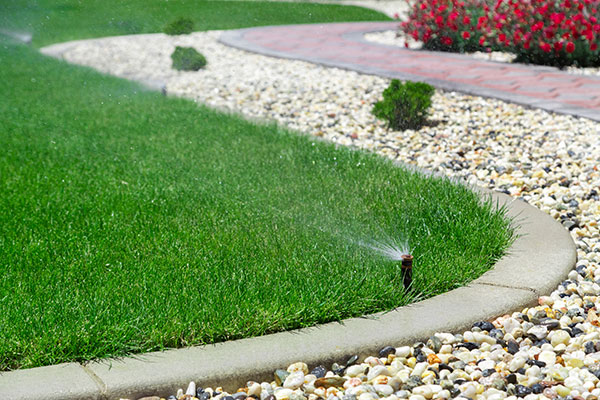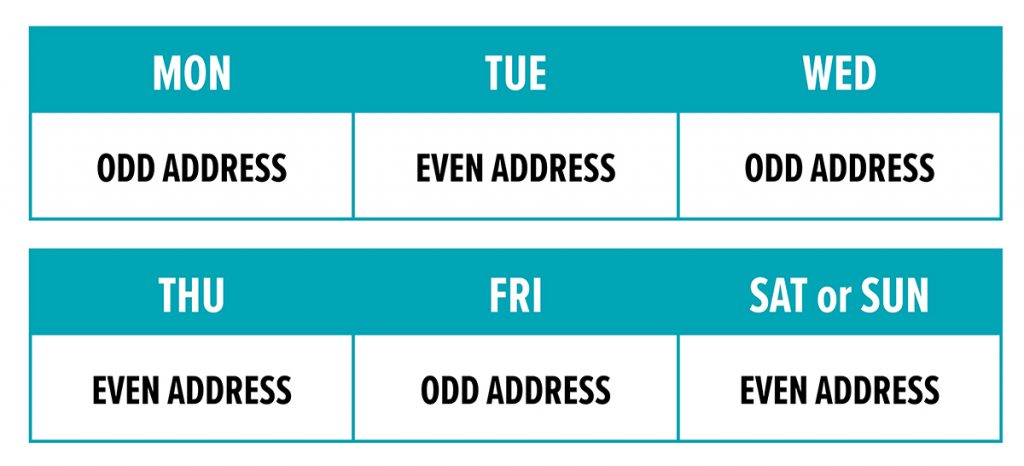Spring Planning: Odd/Even Watering Helps Reduce System Load

Although the District has adequate water supplies, we do see very high demands and some pressure loss in our system in the early morning hours when customers irrigate their lawns. You can help reduce demands and maintain more optimum pressures in the system by scheduling your watering based on your address. We recommend:

Also, here are a few wise water tips to help lower your utility bill.
For outdoor use:
- Water in the early morning, 4 to 10 a.m., to allow grass blades to dry, making them less susceptible to diseases. Don’t water if it’s windy.
- Measure the amount of water applied to your lawn in a 15-minute period using a tuna can. Adjust the run time on your sprinkler system to deliver the required amount. Contact a lawn care professional if you need help.
- Check hose connections for leaks and repair them quickly. A single hose left on uses nearly 300 gallons of water an hour!
- Use a broom to clean patios, sidewalks and driveways.
- Make sure your sprinkler heads are in working order and directed on your lawn and not on sidewalks, driveways and streets. Use sprinklers that emit large droplets, again to reduce losses due to evaporation.
Rain sensor rebate:
- A remote rain sensor shutoff device is a good way to conserve water. We offer a $75 rebate* on any rain shut-off device and/or a WiFi sprinkler predictive controller purchased and installed January 1-December 7, 2023 by an irrigation company. (Purchases prior to January 1, 2023 are not eligible)
- For details, visit the rebates page. (*Rebate will be credited to your M.U.D. account. Must be a M.U.D. water customer).
Inside the house:
- Inspect all pipes and faucets for leaks, and make necessary repairs. If every household in America had a faucet that dripped once each second, we would waste 928 million gallons of water a day or enough to fill 7.5 billion 8 oz. glasses.
- Check toilets for hidden leaks. Tank-to-bowl leaks can waste about a quart of water with each flush. Place a few drops of food coloring in the tank. Wait 15 minutes. If the color appears in the bowl, you have a leak. Make necessary repairs.






